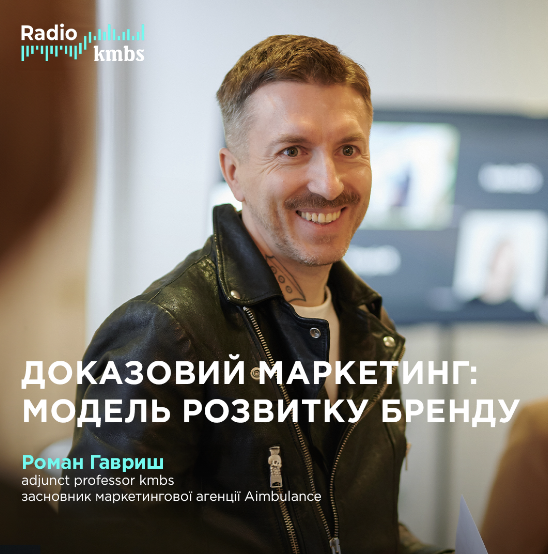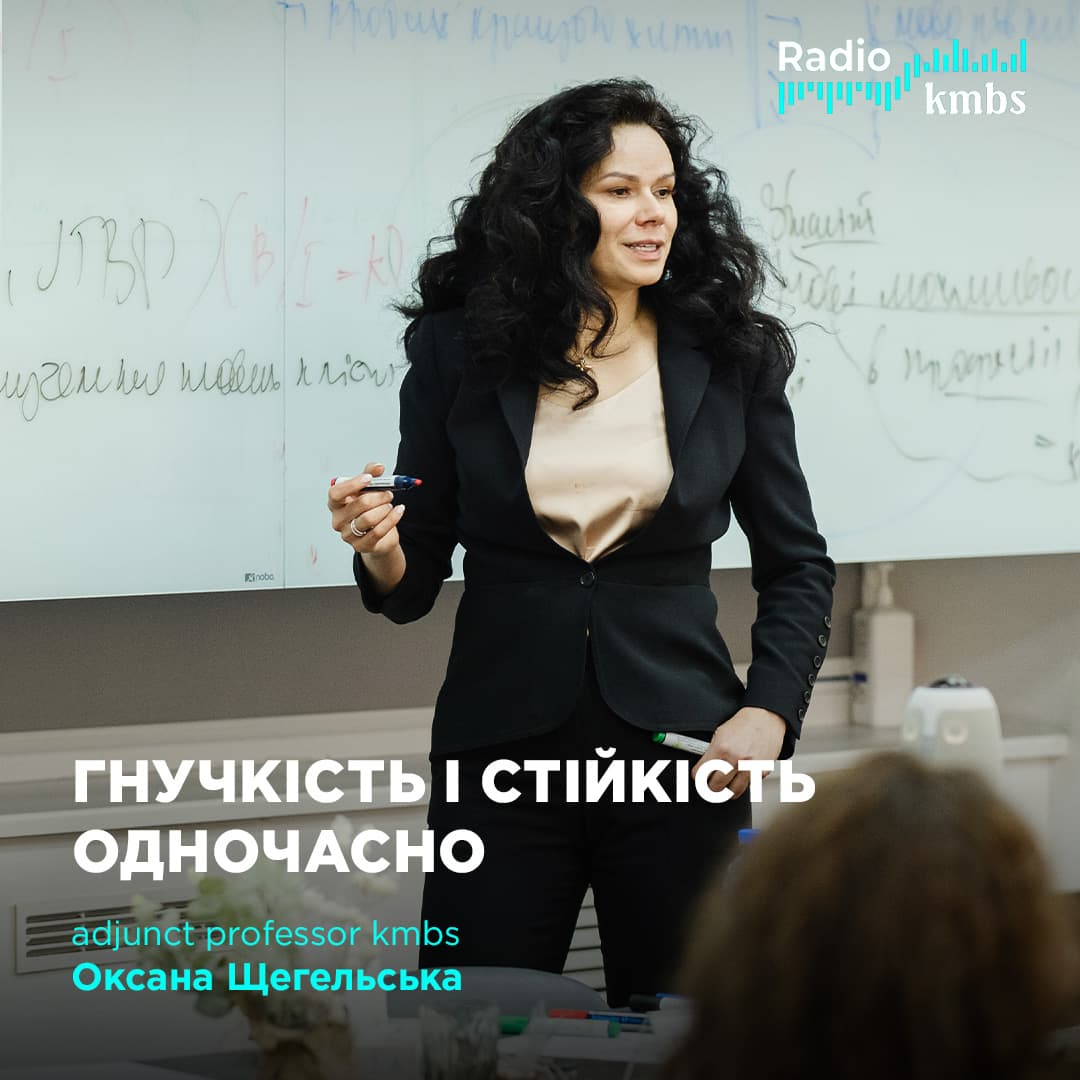Learn first
KMBS latest news in real time

For the latest KMBS events and news, visit KMBS Live at the top right corner of the screen
Open kmbs live
13.12.2021
Partnerships
What makes us capable today? Virtues
The final discussion of the series "What makes us capable today?", Conducted by kmbs and the publishing house "Laboratory", was dedicated to virtues.

Find out kmbs news and events first
kmbs
live
13.02.2024 at 12:29
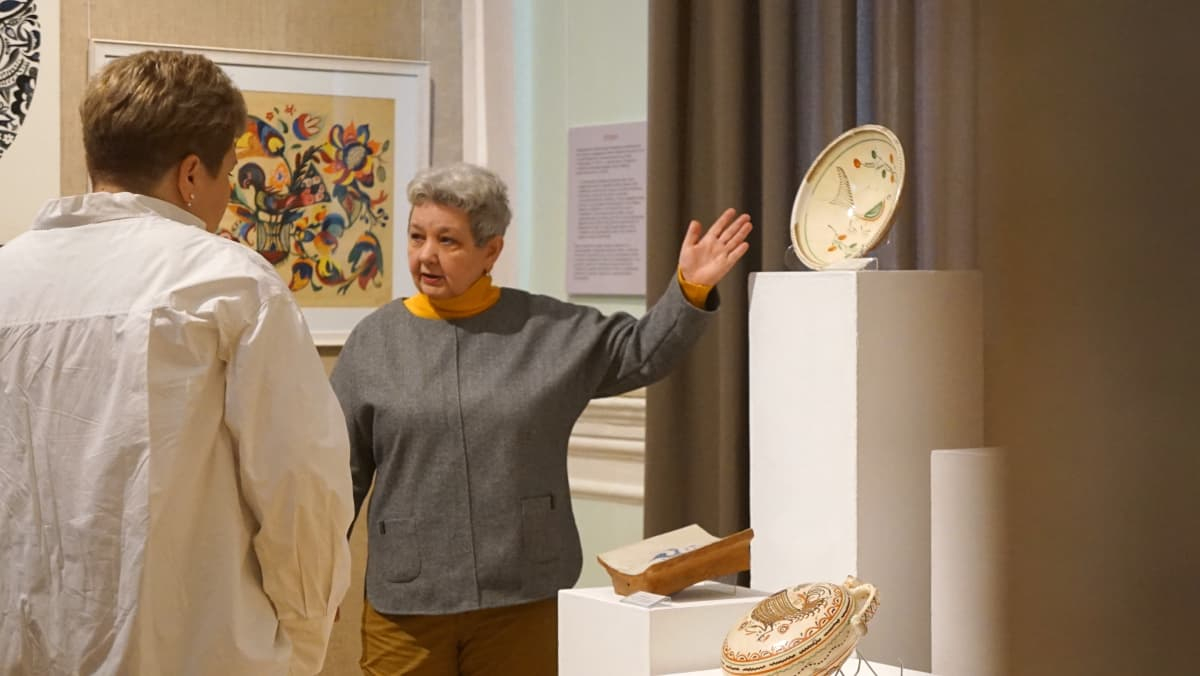

PMBA-25 group visited the exhibition of works by Hanna Sobachko-Shostak, "Eyes of Flowers," ...
13.02.2024 at 12:20
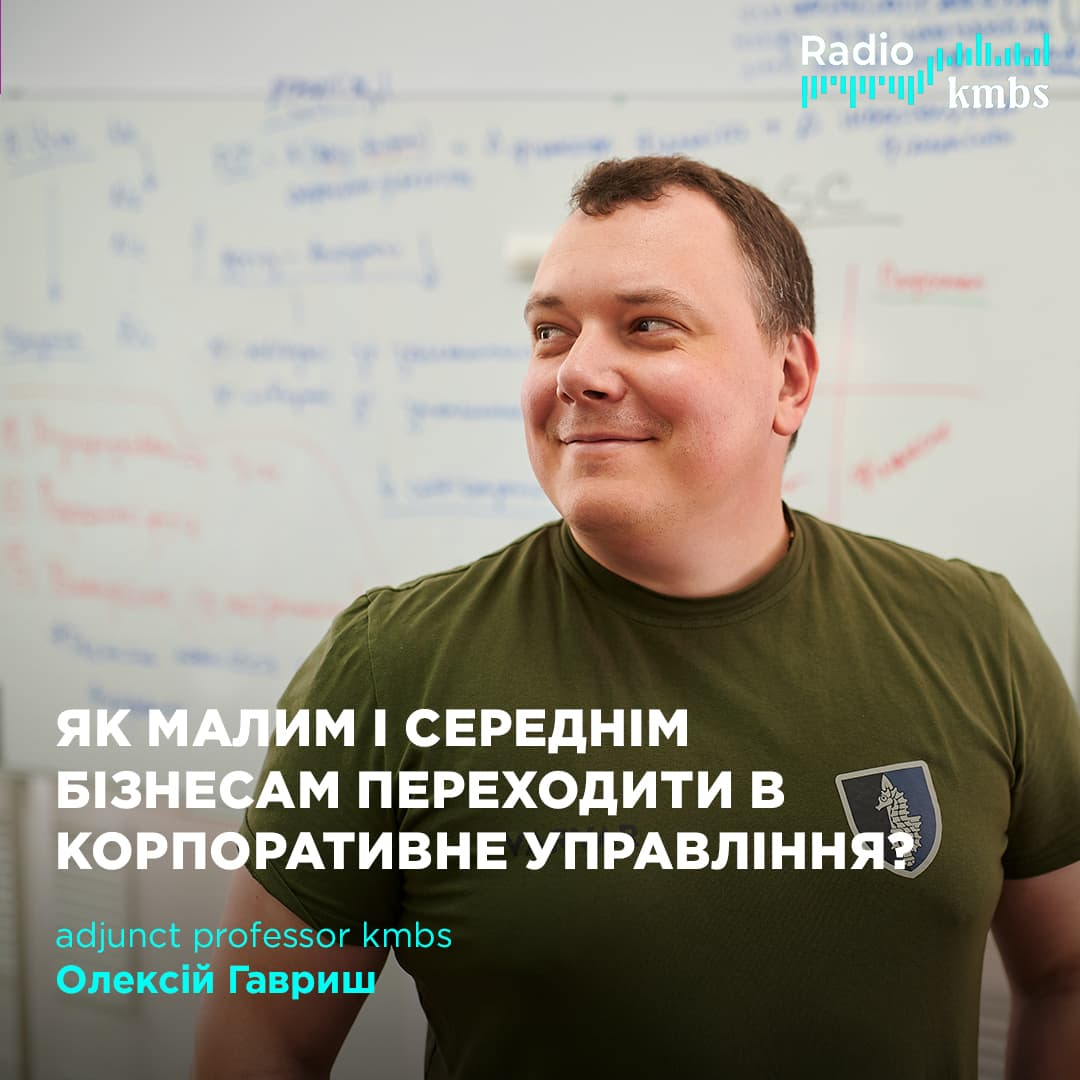

Новий подкаст Radio kmbs "Як малим та середнім бізнесам переходити в корпоративне управління?" ...
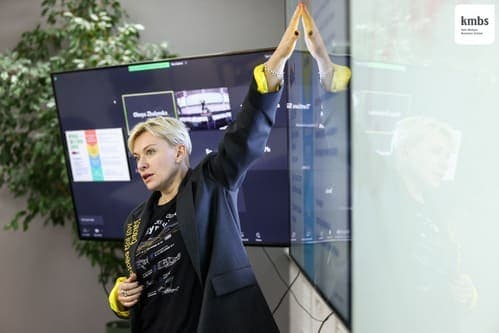
"You have to think through your brand story in detail and tell it. Anything you don't tell, people w ...
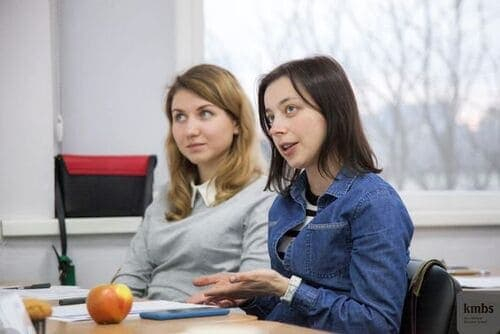
We often hear from businesses working with cross-cultural teams or expanding into global markets abo ...









